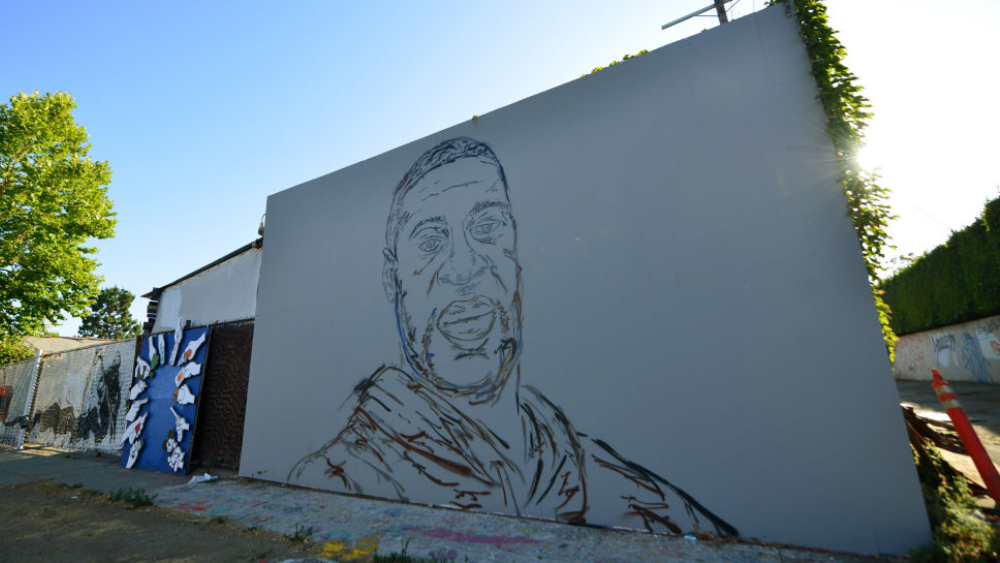If you’re interested in sharing your opinion on any cultural, political or personal topic, create an account here and check out our how-to post to learn more.
____
Much has been said about the images of George Floyd dying on the pavement in Minneapolis. But observe what happened around him while now-fired police officer Derek Chauvin had his knee on his neck.
EMS personnel displayed no sense of urgency after they arrived. One of the paramedics put his gloved fingers on Floyd’s carotid artery and determined that he was pulseless. Chauvin’s knee was still on Floyd’s neck and stayed there for another minute before the EMS personnel eventually had Chauvin remove it in order to move Floyd’s lifeless body. Then, with handcuffs still on, they loaded Floyd into the ambulance. We later found out the EMS personnel eventually performed CPR at some point en route to the emergency department, almost as an afterthought.
As a Black man and a cardiologist, racism and inequity is something I face every day.
Floyd’s last moments on Earth are a metaphor for how America sees and treats Black people. We provoke suspicion, the system judges us summarily and we are discarded.
More than 400 years of catastrophic injustices has brought us to this moment of reckoning, where we see bodies when we should see people.
That’s what happened to Boston teacher Rana Zoe Mungin. After three days of dealing with a cough and fever, Mungin went to the hospital on March 12. The staff gave her asthma medication and sent her home. On a later trip to the hospital, a paramedic dismissed Mungin’s struggle to breathe as a panic attack. When Mungin asked for a COVID-19 test, the doctor said the hospital didn’t have enough so she didn’t get one.
The last time Mungin went to the hospital, she was no longer breathing, and was immediately intubated. She died on April 27.
How America treats people of color like Floyd and Mungin says a lot about how far we must still go as a nation. Had law enforcement de-escalated in Floyd’s situation, had EMS cared enough to provide timely basic life support to Floyd, or had the hospital staff empathized with Mungin — in other words, seen them as fully human — the outcomes might have been different.
The officers who stop me just to make sure I don’t have any warrants. The teachers who questioned my competency to become a doctor. As a new father, I want my son to grow up in a world where he won’t face both the microaggressions and overt racism too many Black people experience today. And as a doctor, I’ve seen too many Black patients whose chronic conditions went unaddressed because of a healthcare system that doesn’t see or hear them.
No wonder Black people have a shorter life expectancy. We are 20% more likely to die from heart disease than white people. We are twice as likely to die of diabetes than white people. Black women are almost three times more likely to die during childbirth than white women, a disparity that exists regardless of education, wealth and status.
We are now contending with the COVID-19 pandemic that has disrupted the lives of most Americans, but predictably Blacks have suffered the most. The mortality rate from COVID-19 is 2.4 times higher in Black Americans than white Americans. If the death rate were the same for Black and white Americans, at least 13, 000 more Black people would be alive today.
Black people’s premature deaths are the result of a systemic racism that underpays Black workers and then shuts the doors of opportunity for too many of us by underfunding our public schools, poisoning our water with lead, polluting the air we breathe, depriving us of healthy food options, criminalizing commonplace behaviors and refusing us access to quality health care everyone deserves.
Slow, incremental quarter-turns haven’t altered the fundamental architecture of American racism. Mass mobilizations and widespread demands for radical change will.
One early sign of progress: After a week of public demonstrations, Minneapolis politicians have pledged to disband its police force, to be replaced with community-driven law enforcement. This is the spirit of the moment we must meet. To make positive change, we must empower all people through a radical reimagination of America’s institutions.
If America is serious about reversing health inequities and adverse outcomes, here are a few things we can do:
-
Build institutions that are actually responsive and accountable to the communities they serve and dismantle the ones that don’t.
-
Demand that resources be allocated equitably in this country.
-
Make healthcare a right so people of all backgrounds get access to quality medical care.
Before she died, Rana Zoe Mungin took an ambulance ride to the hospital, gasping the words, “I can’t breathe.” The same words George Floyd uttered just before he too died.
The status quo is squeezing the life out of too many of us. This is America’s moment to reimagine a new future for all to breathe freely.
____
Bernard Ashby is a cardiologist in Miami, Florida and the Florida State Lead for the Committee to Protect Medicare.
